First day of the Women´s Gathering in La Garrucha
cenutrix | 30.12.2007 07:08 | Gender | Social Struggles | Zapatista | Liverpool
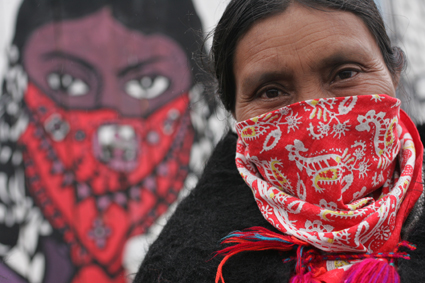
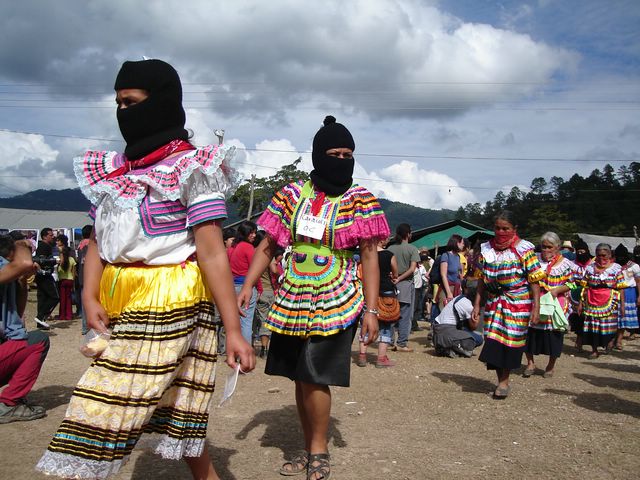
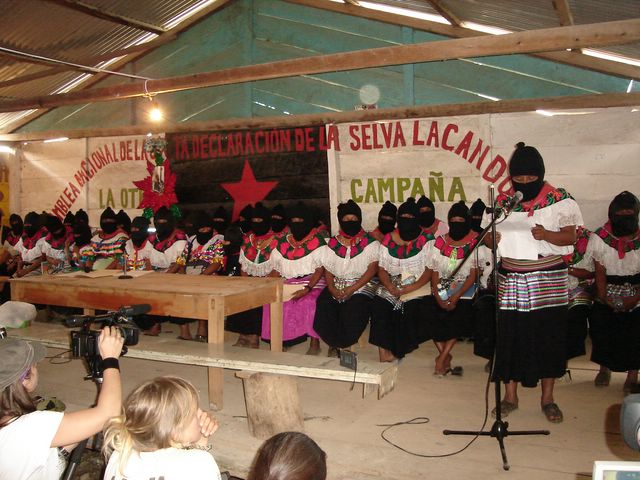
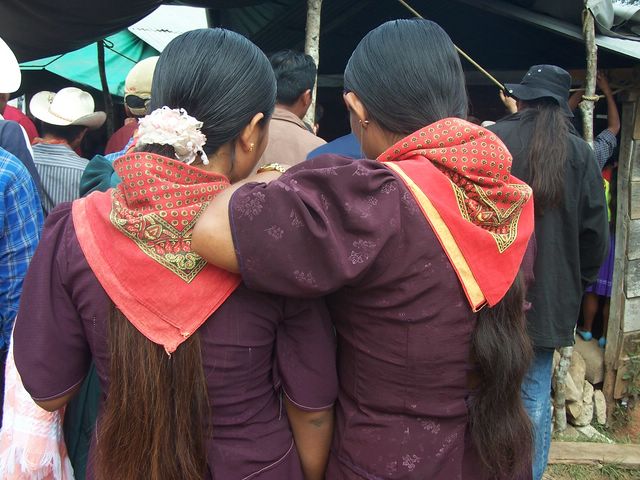
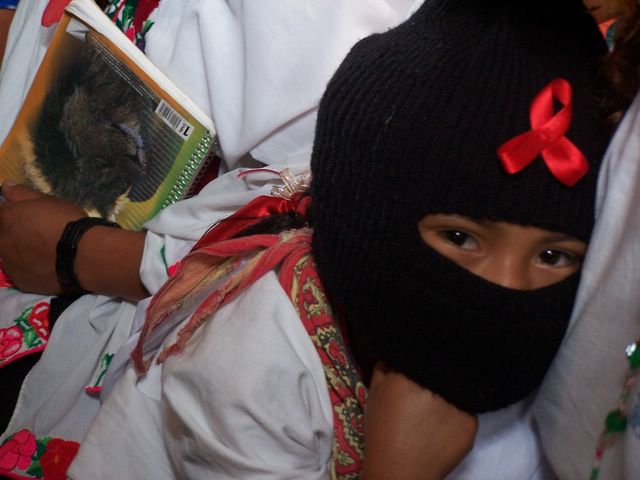
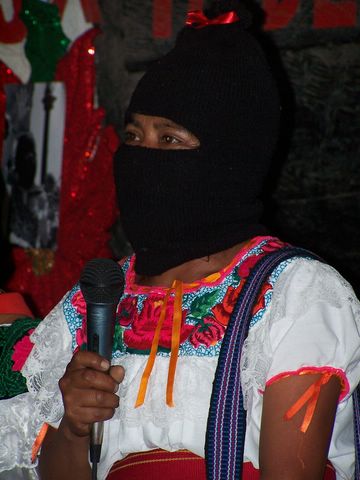
December 29th - Morning session
The Gathering began with the participation of the compañeras from the Zapatista communities, authorities of the Good Government Committee and comandantas and insurgentas from the Caracol of La Garrucha.
The exposition started with the Zapatista women explaining how life was before and how it is now. The 5 minutes for questions were not enough and there was only time to answer a few. This dynamic carried on all morning.
Two compañeras follow on to explain their organisational process.
After a break we came back to listen to the words of the health and education promoters from the same caracol, who described all the advances that have been achieved throughout the last years in each one of their areas of work and about the difficulties they have found along the way as women.
The auditorium was filled with women from all areas of the autonomous and rebellious Zapatista municipalities, women from other places as well, in addition to a large number of photograph and video takers. The only ones using the equipment were women as the men were not permitted to film or even be present in the auditorium. All of the men were standing outside and listening close to the windows and through the cracks between the wooden boards but keeping their distance. They were more than expected, and it is surprising given the small presence of men in other movements when it comes to listening to the voice of their compañeras.
Afternoon...
After lunch came the participation of the compañeras of the Good Government Committee, the Autonomous (advisory) Council, and two compañeras, receiving the most vibrant applause, who talked about how their lives are thanks to the struggle of their elders.
Next, a compañera spoke carrying the voice of the Zapatista mothers and concluded the participation of the representatives of the Caracol of La Garrucha. She spoke on the subject of woman and the Other Campaign and highlighted the situation of the persecuted, repressed, and incarcerated compañeras of struggle. The women made clear that they are not against men; “agreement has to be reached from both sides, the man and the woman, and the family, otherwise we cannot struggle. Unity is necessary for a better life for all”.
At one point they announced that the men who had come to work on media coverage could come in to document the participation of the women. They were not allowed to do interviews, but they were permitted to film and record, " if they respect u s", said the Zapatista compañeras.
After the participation of the compañeras of Caracol III, we listened to the women from the Zapatista support communities, promoters of health and education, different committee members, comandantas and insurgentas, and children from the Caracol IV, Morelia.
As the compañeras of La Garrucha did, many women from the Zapatista support communities began to talk about how they used to live before the uprising of 1994 and how they are living now.
Comandanta Sandra described their organizing process and what kind of difficulties they had to overcome. On the inequality between men and women she underlined: "we don´t blame the compañeros, the damn system has to be blamed, women without men cannot struggle and men without women can’t either". Sandra thanked "our warriors", the first women of the Zapatista struggle, the ones who have fallen, she thanked the legacy they have left behind.
One comandanta talked briefly on how the work of the compañeras is organized at regional and local levels.
Comandanta Míriam, when answering a question from the public regarding the meaning of the Revolutionary Women´s Law, stated that it encourages a new space for the participation for the compañeras.
cenutrix